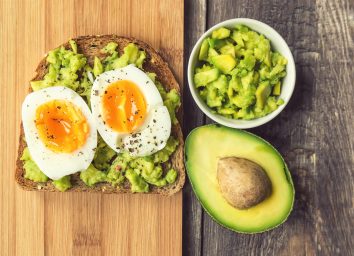The FDA Just Released These 6 New Food Safety Tips
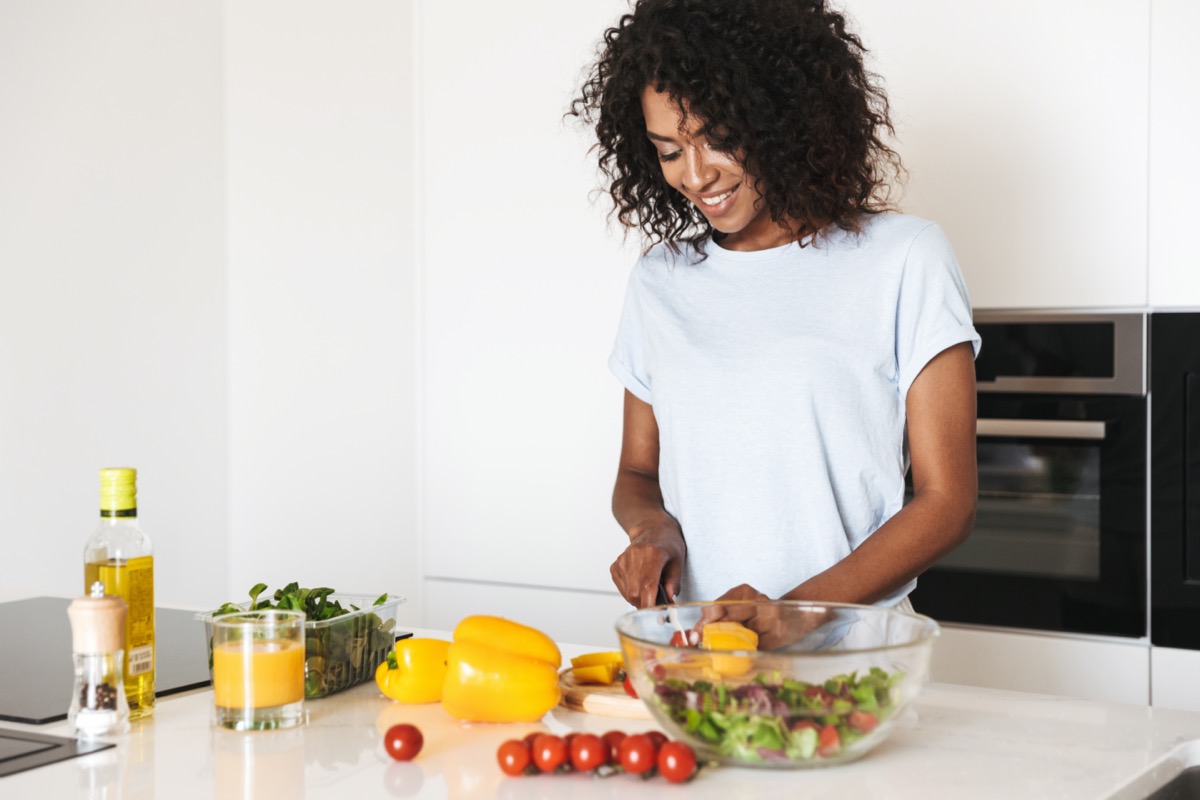
Your pots and pans may be busier this year after finding yourself unexpectedly at home. And with Thanksgiving and the holidays right around the corner, it's not time to put them away just yet. Amid several recalls and outbreaks impacting grocery store foods as of late, the Food and Drug Administration (FDA) has released some food safety tips to help you reduce your risk of developing a foodborne illness.
While you can never be too safe right right now, these six tips are helpful all year round. (And be sure to check out the 21 Best Healthy Cooking Hacks of All Time before you turn the oven on again!)
Never consume raw flour.
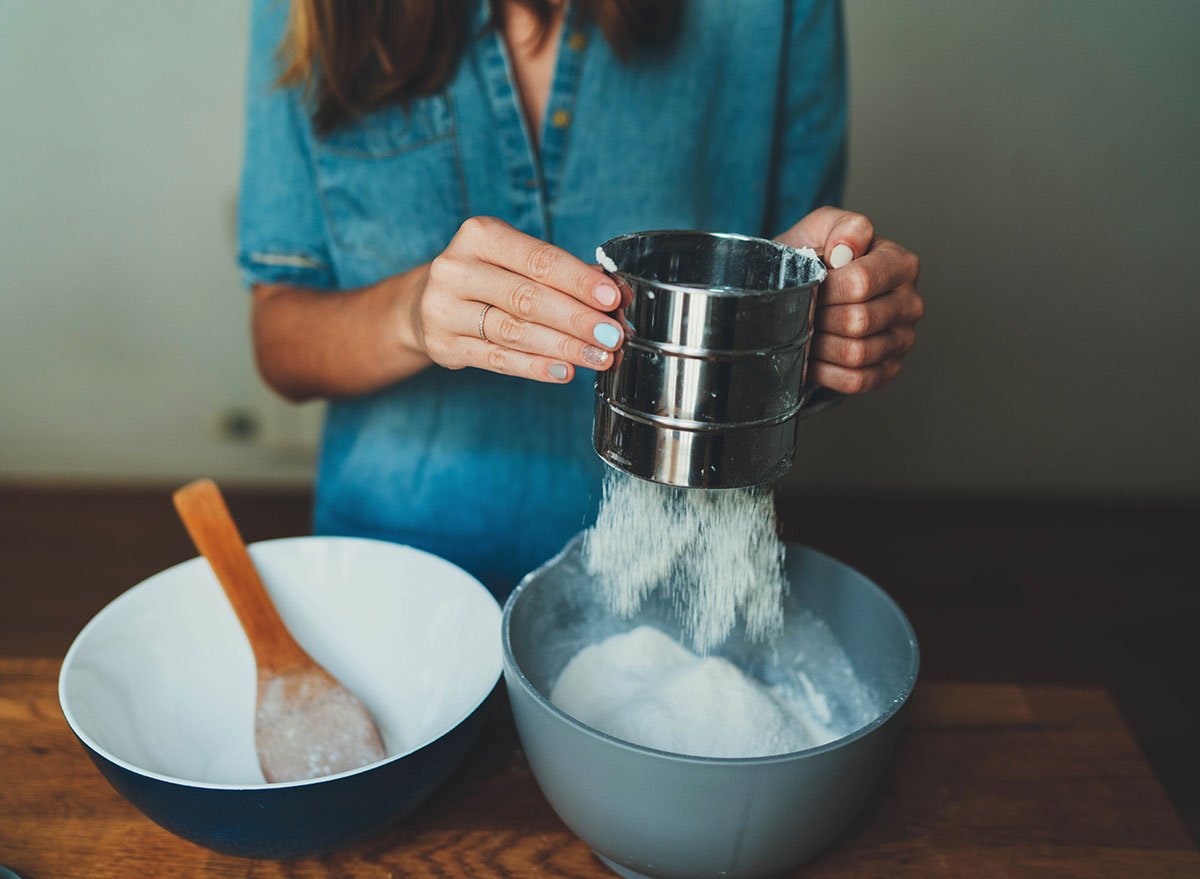
The FDA starts off its list of safety tips that can help you avoid foodborne illness this fall with a warning about raw flour: It may contain harmful bacteria. "If you're baking apple pies, pumpkin bread, or anything in between, you're likely using flour," the FDA says, "and it's important to remember that flour is a raw food."
The bacteria is killed off in the oven, so make sure to avoid tasting the batter. Unfortunately, this means cookie dough. But, How Unsafe Is It Really to Eat Raw Cookie Dough?
Keep raw foods separate.

Disease-causing bacteria or pathogens can contaminate surfaces, so follow this rule to avoid spreading foodborne illness: Keep things separate. Clean your appliances, cutting boards, dishes, and all other kitchen tools with hot soapy water after preparing separate food items. Don't forget countertops, kitchen surfaces, and stovetops, too!
Unless it's been thoroughly washed, never serve cooked or ready-to-eat foods on a dish that previously had raw eggs, meat, poultry, or seafood on it. Before you even leave the store, remember to always keep these items separate in your shopping carts, grocery bags, and refrigerators.
For more, here are 30 foods that shouldn't be eaten raw.
Follow the recipe to a "T."
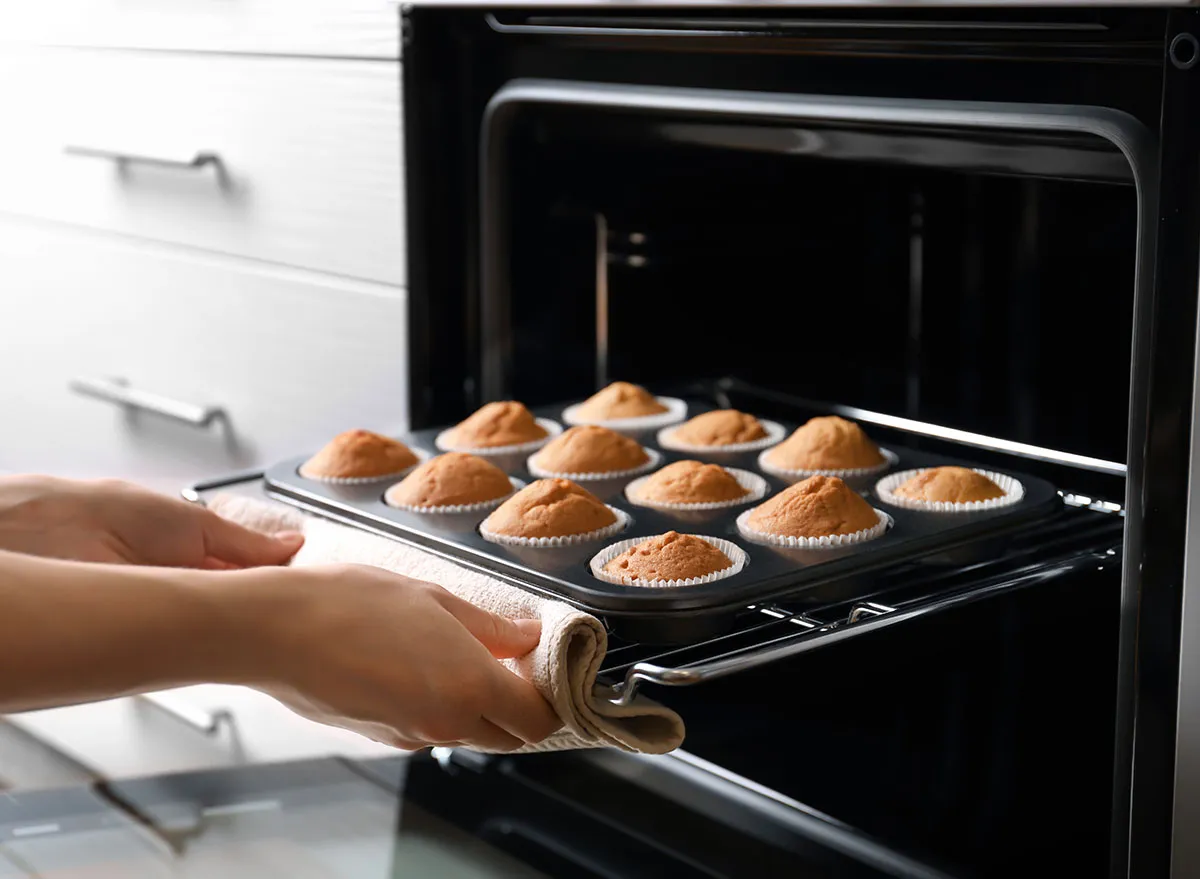
Not willingly consuming raw flour, eggs, and other ingredients is an easy way to protect yourself from foodborne illnesses, but perhaps the most important is to simply follow the recipe! There's a reason why there are specific cooking temperatures and times to follow.
For any specific questions, Text This Number on Thanksgiving for Turkey-Cooking Tips.
Clean up!
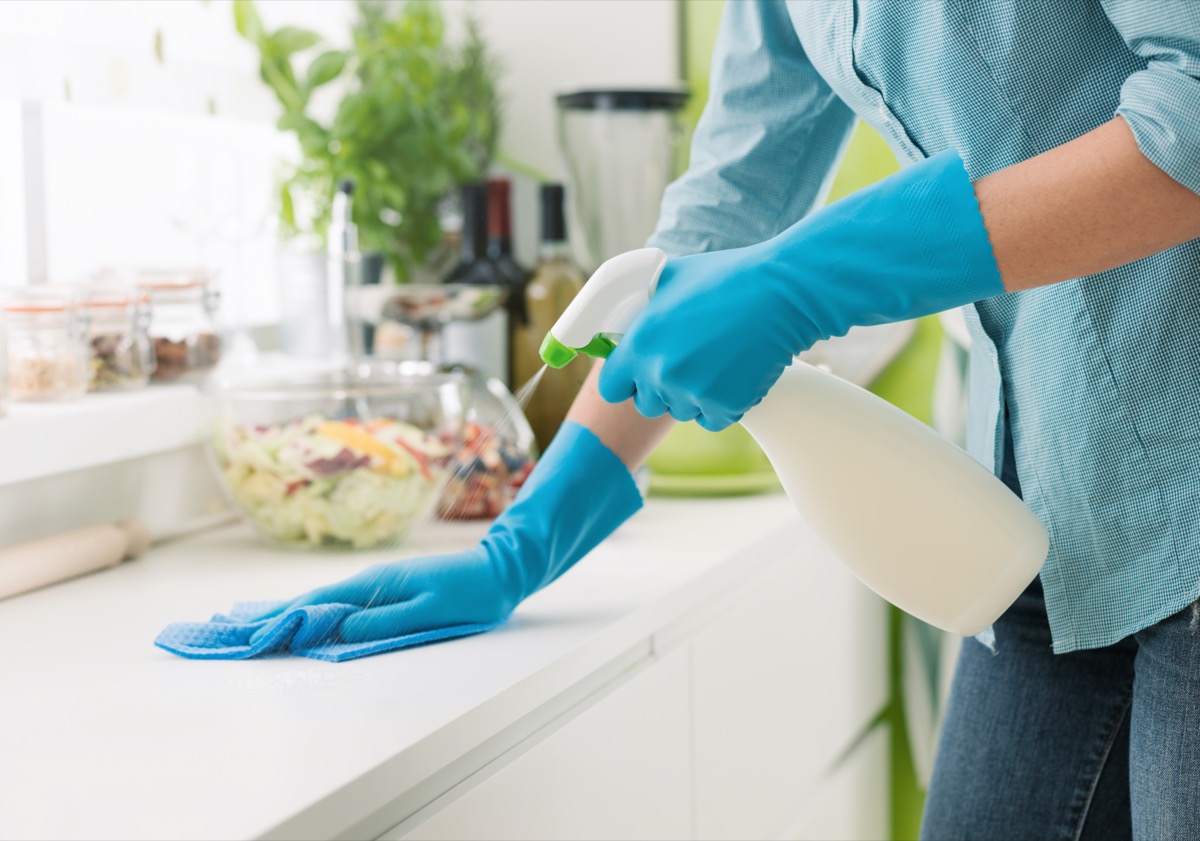
Use hand sanitizer often when at the grocery store, and wash your hands when you get home. The FDA says it's also best to clean surfaces often when preparing a meal—whether the food you're working with is raw or not. Doing so not only gets rid of bacteria but also other germs from outside your home that may have found there way inside.
Want some specific tips on how to keep your cooking space clean? Here are the best 50 kitchen cleaning tips right now.
Refrigerate quickly.
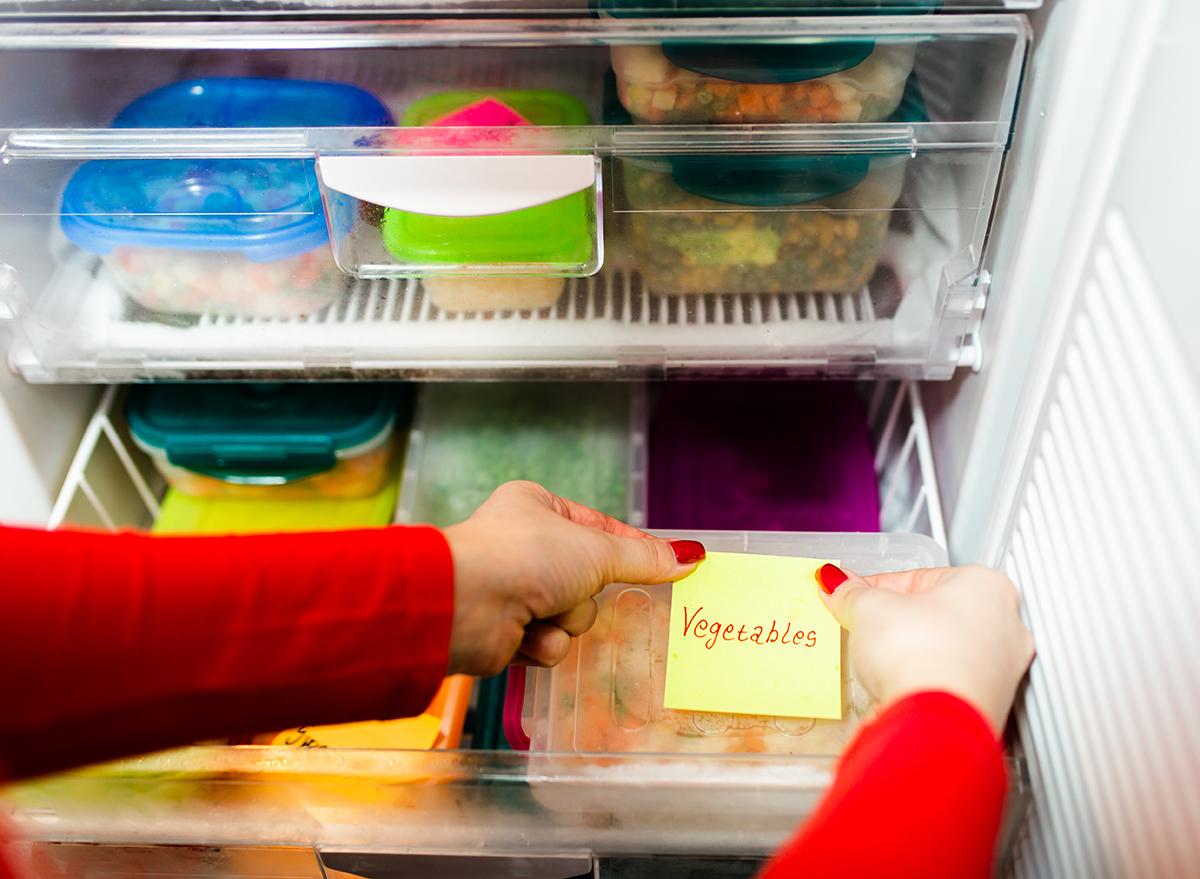
One way bacteria can spread is if food isn't properly chilled—before and after preparing it. The FDA recommends "refrigerating or freezing meat, poultry, eggs, seafood, and other perishables within two hours of cooking or purchasing."
The time moves up to one hour if the temperature outside is over 90 degrees Fahrenheit. While this Thanksgiving may not be that hot, it's better to be safe than sorry!
Related: 17 Must-Have Groceries You (Surprisingly) Don't Need to Refrigerate
Pay close attention to fresh juice and cider.
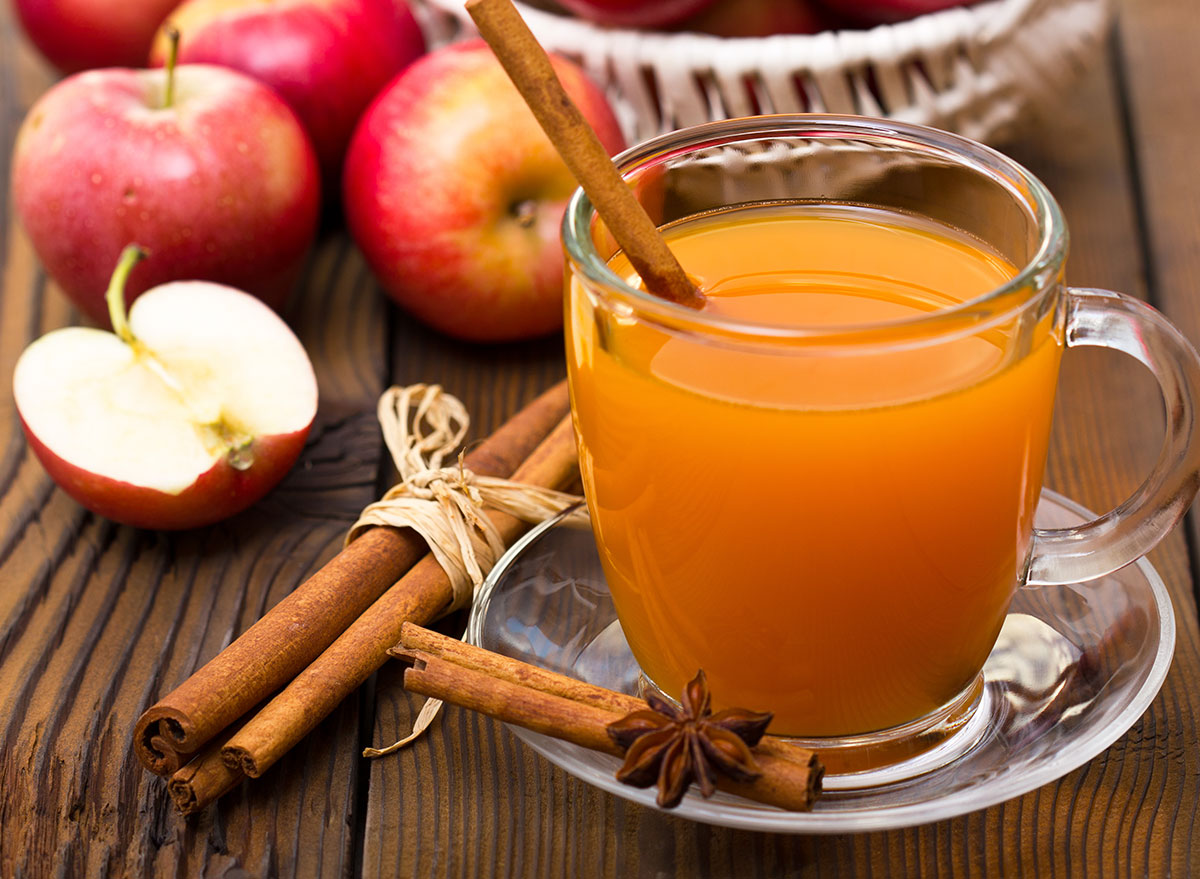
Like meat, poultry, seafood, flour, and eggs, fresh produce may also carry the harmful bacteria which cause foodborne illnesses. So it's important during cider season to be careful with buying or making fresh-squeezed drinks.
"Unless the produce or the juice have been pasteurized or otherwise treated to destroy harmful bacteria, the juice could be contaminated," the FDA says. "When preparing juice or cider at home, thoroughly wash your hands and all produce and cut away any damaged or bruised areas on fruits and vegetables. Store the juice and cider in the refrigerator."
For more on staying safe around food, sign up for our daily newsletter to get tips, notices, recalls, and more delivered straight to your inbox.
